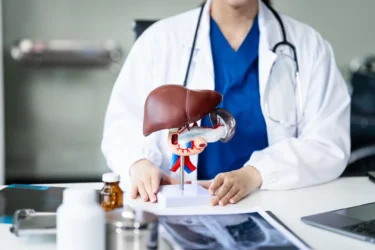Vijaysar (Pterocarpus marsupium): Uses, Benefits, Side Effects and more!
By Dr Ashok Pal +2 more

Get,

to manage your symptom
Get your,


4 Cr+ families
benefitted

OTP sent to 9988776655



You’ve successfully subscribed to receive
doctor-approved tips on
Whatsapp

Get ready to feel your best.

Hi There,
Download the PharmEasy App now!!


Register to Avail the Offer
Send OTPBy continuing, you agree with our Privacy Policy and Terms and Conditions

Hi There,
Sign up on PharmEasy now!!
Trusted by 4 crore+ families

OTP sent to 9988776655



You have unlocked 25% off on medicines




Code: NU25
By Dr Ashok Pal +2 more
Table of Contents
Vijaysar is a plant drug used in Ayurvedic medicine. It is scientifically known as Pterocarpus marsupium and belongs to the Fabaceae family. This plant grows naturally in India, Srilanka, and Nepal. It has been used for thousands of years for managing various disease conditions1.
Vijaysar is called the Indian kino tree or Malabar tree in English; Vijayasar or Bija in Hindi; Asana or Bijaka in Sanskrit; Biyo in Gujarati; Bijasara in Kannada; Lal Chandeur in Kashmiri; Piyasala or Pittasala in Bengali; Venga in Malayam; Bibila in Marathi; Piashala in Oriya; Channanlal in Panjabi; Vengai in Tamil; Yegi in Telugu; and Bijasar in Urdu1,2.

Vijaysar has various nutrients and chemical compounds like carbohydrates, fats, flavonoids, glycosides, alkaloids, saponins and tannins. It is also high in polyphenolic compounds (micronutrients that occur in plants)3.
Vijaysar has various helpful properties like:
In my experience, Vijaysar’s rasayani dravya may aid in reducing ageing. Vijaysar may promote tissue regeneration, antioxidant activity, and tissue healing.
Dr. Anuja Bodhare, B.A.M.S, M.D (Ayu)

Antibacterial properties of Vijaysar stem and bark extract have been demonstrated by laboratory studies. Stem extract showed antibacterial activity against Bacillus coagulans and Escherichia coli, which cause stomach infections. Vijaysar has also been studied to have antibacterial activity against other bacteria such as Streptococcus pyrogens, Staphylococcus aureus, Enterococci, Escherichia coli, and Pseudomonas aeruginosa in both laboratory and animal studies1. However, if you are suffering from bacterial infection, reach out to your healthcare provider and get treated. Avoid using herbs or remedies to treat infections without consulting your doctor first.

Two components in Vijaysar extract were found to inhibit the multiplication and spread of cancer cells to other organs. Vijaysar could also induce the death of cancer cells and is reported to have anti-cancer properties. It may also be used to manage prostate and breast cancer1. However, more research is needed to support the use of vijaysar in cancer. You are advised not to use any herbs for cancer without consulting your doctor.

Since ancient times, Vijaysar has been a highly effective antidiabetic agent. It may lower blood sugar levels by protecting and regenerating insulin-producing cells. Many animal studies have shown that it could reverse beta cell (insulin-producing cells) damage and restore normal insulin levels. Clinical studies1 have shown that Vijaysar has blood sugar lowering properties without causing any side effects. However, diabetes is a serious health condition that requires you to strictly adhere to the doctor’s advice and treatment. Avoid using herbal remedies to treat diabetes without first talking to your healthcare provider.

Vijaysar heartwood (dense inner part of a tree trunk) extract could show lipid-lowering activity in lab trials. The extract could also reduce total blood cholesterol levels. It might reduce bad cholesterol while having no effect on good cholesterol. Bad cholesterol raises the chances of heart problems1.
According to a lab study, Vijaysar extract showed excellent heart stimulating activity (an activity that increases efficiency and muscle contraction of the heart). In addition, Vijaysar could stimulate the heart to increase its force and rate of contraction, according to another lab study. These properties of vijaysar have been observed in lab studies. However, more research is required to support the use of vijaysar for heart problems. In case of any heart problems, you need to speak to your healthcare provider.

In a study1, the liver-protective activity of Vijaysar bark extract was investigated. The study demonstrated that biochemical parameters such as liver enzymes (used to assess liver function) were controlled after using vijaysar, a sign of a healthy liver. However, if you suffer from liver problems, using herbal remedies without consulting a doctor may damage the liver.

Vijaysar may show an antidiarrhoeal property. Heartwood extract of vijaysar could significantly benefit diarrhoea by reducing its frequency and severity during trials. In addition, studies3 supported that flavonoids (plant metabolites) of Vijaysar extract might be responsible for the antidiarrhoeal activity. If you are suffering from diarrhoea, make sure you have consulted your doctor first.

Vijaysar was found to be a potent memory-enhancing agent, according to an animal study. In animal models, administration of Vijaysar extracts reduced drug-induced amnesia (loss of memory). In addition, vijaysar extract has phytoconstituents like saponins that may show nootropic activity (an activity that enhances brain performance). However, in case of any problems associated with the brain, you should consult your healthcare provider and get a proper diagnosis3. Self-treating may worsen your symptoms.
Vijaysar bark and leaves have anti-inflammatory, anti-microbial, and antioxidant qualities that may cleanse the blood. From my experience, this plant may help you in several hair issues, including dandruff, folliculitis, itching, and hair infections. Vijaysar may improve blood circulation while nourishing the hair follicles to stop hair loss.
Dr. Smita Barode, B.A.M.S, M.S.

Though there are studies showing the benefits of the vijaysar in various conditions, these are insufficient and there is a need for further studies to establish the true extent of the benefits of vijaysar on human health.
Vijaysar decoction consumption may impair a person’s capacity to taste sweet foods. This may successfully reduce cravings while promoting a healthy lifestyle. From my experience, Vijaysar has a lot of alkaloids and flavonoids, which may aid in weight loss. LDL (Low-Density Lipoprotein, or Bad Cholesterol) buildup is also believed to be decreased by bark powder.
Dr. Rajeev Singh, BAMS
There are many ways to make use of Vijaysar. All its plant parts listed below offer some benefits for human use.
You must consult a qualified doctor before taking vijaysar or any herbal supplements. Likewise, do not discontinue or replace an ongoing treatment of modern medicine with an ayurvedic/herbal preparation without consulting a qualified doctor.
An extract from the bark and roots of Vijaysar has anti-inflammatory and antibacterial compounds. In my experience, when gently massaged into the eyelids and removed after 15 minutes, Vijaysar oil may minimise the swelling, redness, and discomfort associated with eye infections. In addition, Vijaysar oil may ease eye pain and strain and may promote clear vision.
Dr. Siddharth Gupta, B.A.M.S, M.D (Ayu)
Vijaysar does not cause any major side effects when administered in prescribed doses1. However, if you experience any mild or severe side effects after using vijaysar, immediately reach out to your healthcare provider.
Also, do not use Vijaysar or any Ayurvedic medicine without consulting your physician first.
Also Read: Kantakari (Solanum xanthocarpum): Uses, Benefits, Side Effects, and more!
Vijaysar is an Ayurvedic medicine with many therapeutic properties. However, you need to exercise precautions such as:
Also, before using vijaysar for its medicinal properties, make sure you have consulted your healthcare provider or physician about its possible precautions.
Also Read: Nagkesar – Benefits, Uses & Side Effects
Vijaysar has significant effects on blood sugar levels. People on antidiabetic medications should avoid taking Vijaysar because it can cause a considerable drop in blood sugar1.
If you are taking medicines for any health conditions, you need to talk to your healthcare provider regarding the possible interactions of the drug with other herbs and medicines.
Also Read: Black Cardamom (Badi Elaichi): Uses, Benefits, Side Effects and More!
Vijaysar is a medicinal plant used in Ayurvedic, Homoeopathic and Unani systems of medicine1.
All parts of the Vijaysar plant have different uses. All the plant parts, including leaves, barks, flowers, heartwood, resins, and gums, have medicinal uses. It is also used for its timber1. However, consult your healthcare provider before you sue vijaysar for its health benefits.
Vijaysar offers many benefits for people with diabetes. It may aid in regulating blood glucose levels and the regeneration of insulin-producing cells. It may also protect insulin-producing cells and also restore normal insulin levels1. Vijaysar should be used under the supervision of a medical professional. Do not use any herbal remedy for diabetes without consulting your healthcare provider.
The bark of the Vijaysar tree may help deal with toothache. In addition, the bark and resin can be used to make a decoction. This decoction may be used to manage urinary tract discharge and cancer1. Before using vijaysar for these benefits, reach out to your healthcare provider and get a proper diagnosis.
Yes, Vijaysar is used in the Ayurvedic system of medicine. It belongs to a group called Rasayana in Ayurveda5. It should be sued under the supervision of an ayurvedic physician.
Vijaysar is also called the Indian Kino tree and Malabar tree in English2.
1. Singh Mahalwal V, Ali M. Phytochemical and pharmacological profile of Pterocarpus marsupium: A review. The Pharma Innovation Journal [Internet]. 2016;5(4):31–9. Available from: https://www.researchgate.net/publication/303370375
2. The Ayurvedic Pharmacopoeia Of India Part-I. Vol. 1. Government Of India Ministry Of Health And Family Welfare Department Of Ayush; Available from: http://www.ayurveda.hu/api/API-Vol-1.pdf
3. Ahmed Hilal RK. Pharmacology of Pterocarpus marsupium Roxb. Medicinal Plant Research. 2015;5(3):1–6. Available from: https://www.researchgate.net/publication/281740597_Pharmacology_of_Pterocarpus_marsupium_Roxb
4. Sukhadiya M, Chintan D, Behera L, Mehta A, Dholariya C, Behera LK, et al. Indian Kino Tree (Pterocarpus Marsupium Roxb.): Biography Of Excellent Timber Tree Species. MFP NEWS [Internet]. 2019;XXIX(1):4. Available from: https://www.researchgate.net/publication/332697158
5. Halagappa K, Girish HN, Srinivasan BP. The study of aqueous extract of Pterocarpus marsupium Roxb. on cytokine TNF-α in type 2 diabetic rats. Indian Journal of Pharmacology [Internet]. 2010 Nov [cited 2022 Apr 13];42(6):392. Available from: https://www.ncbi.nlm.nih.gov/pmc/articles/PMC2991700/
Disclaimer: The information provided here is for educational/awareness purposes only and is not intended to be a substitute for medical treatment by a healthcare professional and should not be relied upon to diagnose or treat any medical condition. The reader should consult a registered medical practitioner to determine the appropriateness of the information and before consuming any medication. PharmEasy does not provide any guarantee or warranty (express or implied) regarding the accuracy, adequacy, completeness, legality, reliability or usefulness of the information; and disclaims any liability arising thereof.
Links and product recommendations in the information provided here are advertisements of third-party products available on the website. PharmEasy does not make any representation on the accuracy or suitability of such products/services. Advertisements do not influence the editorial decisions or content. The information in this blog is subject to change without notice. The authors and administrators reserve the right to modify, add, or remove content without notification. It is your responsibility to review this disclaimer regularly for any changes.
Comments

Leave your comment...
You may also like
Comments